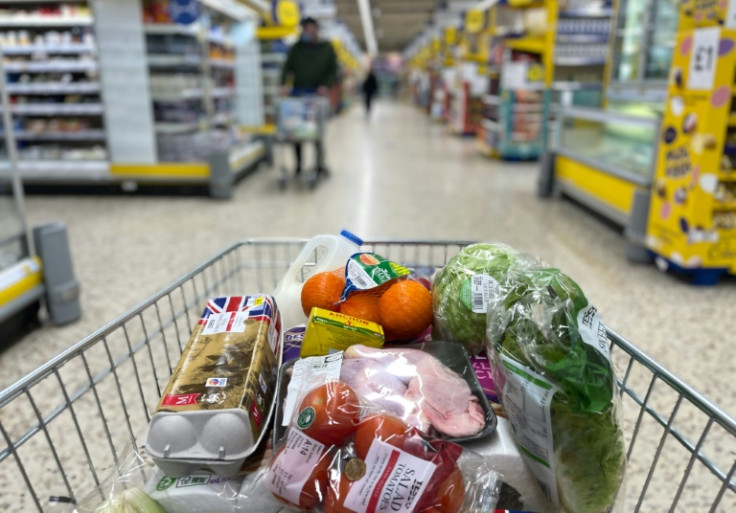UK Inflation In Shock Rise, Dashing Rate Cut Hopes
British annual inflation unexpectedly picked up in December, data showed Wednesday, dashing hopes of an early cut to UK interest rates and prolonging a cost-of-living squeeze before an election.

British annual inflation unexpectedly picked up in December, data showed Wednesday, dashing hopes of an early cut to UK interest rates and prolonging a cost-of-living squeeze before an election.
The Consumer Prices Index (CPI) accelerated slightly to 4.0 percent from 3.9 percent in November, the Office for National Statistics said, confounding expectations for a modest slowdown.
The news dented hopes the Bank of England would cut interest rates in the first half of 2024, boosting the pound versus the dollar and euro but sending the London stock market slumping.
The CPI rate is double the BoE's official target of two percent and the highest level in the Group of Seven rich nations.
The news is a blow to Prime Minister Rishi Sunak, whose Conservatives massively trail the main opposition Labour party in opinion polls before a general election expected this year.
"Today's UK inflation numbers serve to reinforce the challenge facing the Bank of England in returning inflation to target... with markets pushing back the timing of the first cut to the middle of the summer," said CMC Markets analyst Michael Hewson.
"The only debate now is not whether we see rate cuts this year, it is when we see rate cuts."
Rising alcohol and tobacco prices helped spark the first increase to annual inflation since February last year, the ONS said.
There have also been recent rises to inflation in the United States and eurozone.
"As we have seen in the United States, France and Germany, inflation does not fall in a straight line," finance minister Jeremy Hunt in response to the data.
The BoE has lifted interest rates to a 15-year peak in a bid to dampen inflation, worsening a cost-of-living crisis as commercial lenders mirror the higher loan costs to businesses and consumers.
Drawnout strike action across the public and private sectors also threaten to tip Britain's economy into recession.
Hunt on Wednesday said the British government remained concerned by the inflation risk posed by Huthi attacks on global shipping transiting the Red Sea.
Britain and the United States have launched strikes against Iran-backed Huthi rebels in response to the attacks.
Since mid-November, the Huthi attacks have prompted many shipping firms to take the longer route around the tip of Africa, disrupting supply chains and sending shipping prices higher.
"Despite a December rise, inflation is expected to continue falling this year," noted KPMG UK chief economist Yael Selfin, citing lower energy bills.
"Nevertheless, disruptions in the Red Sea impacting supply chains could cause further increases in goods prices."
The BoE in December kept its key interest rate at 5.25 percent and warned it would remain elevated to tackle stubbornly high consumer prices.
The bank has implemented 14 hikes since late 2021, when inflationary pressures started to build after Covid lockdowns were lifted.
UK inflation went on to strike a 41-year high at 11.1 percent in October 2022, stoked by spiking energy prices after the invasion of Ukraine by major oil and gas producer Russia.
© Copyright AFP 2025. All rights reserved.





















